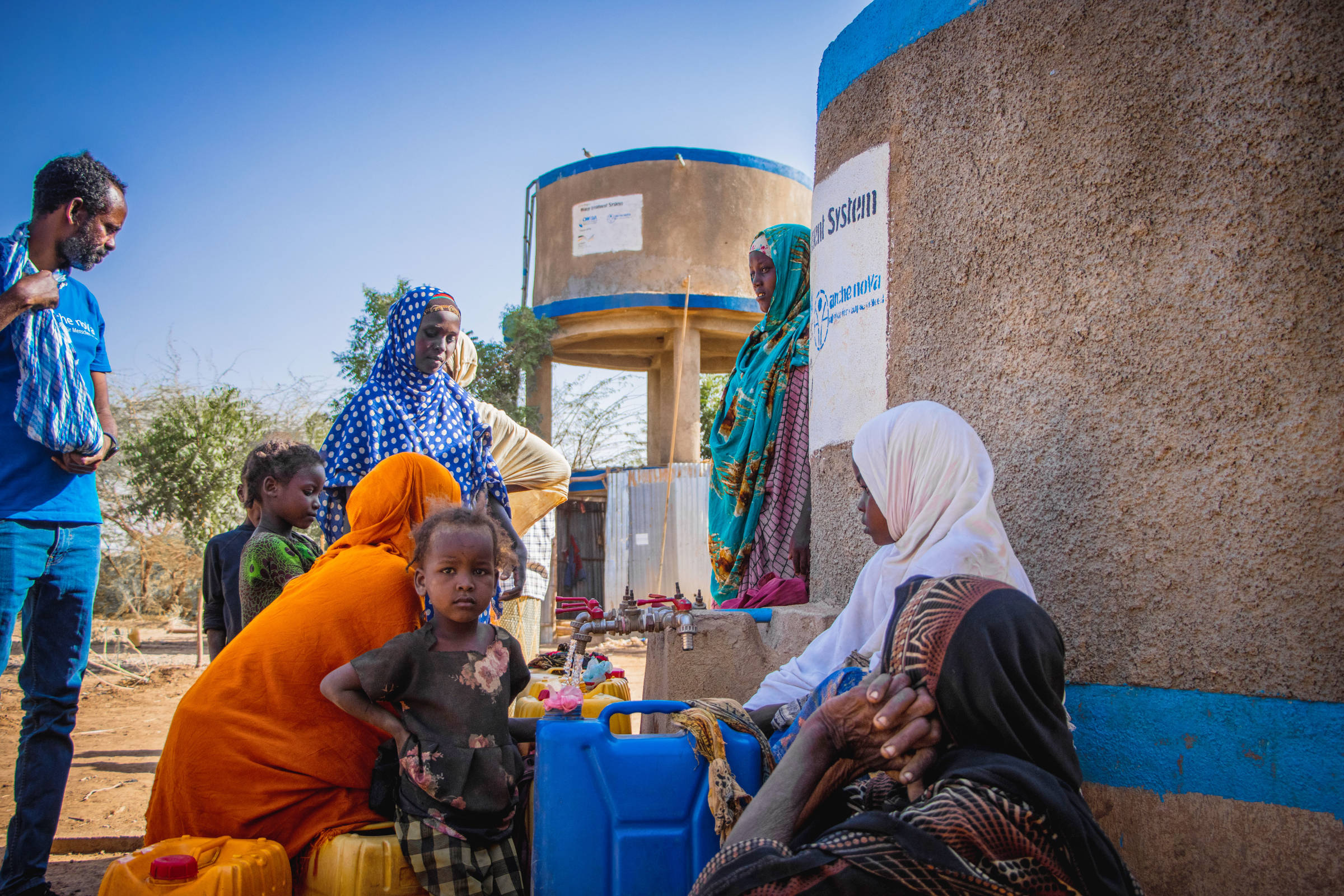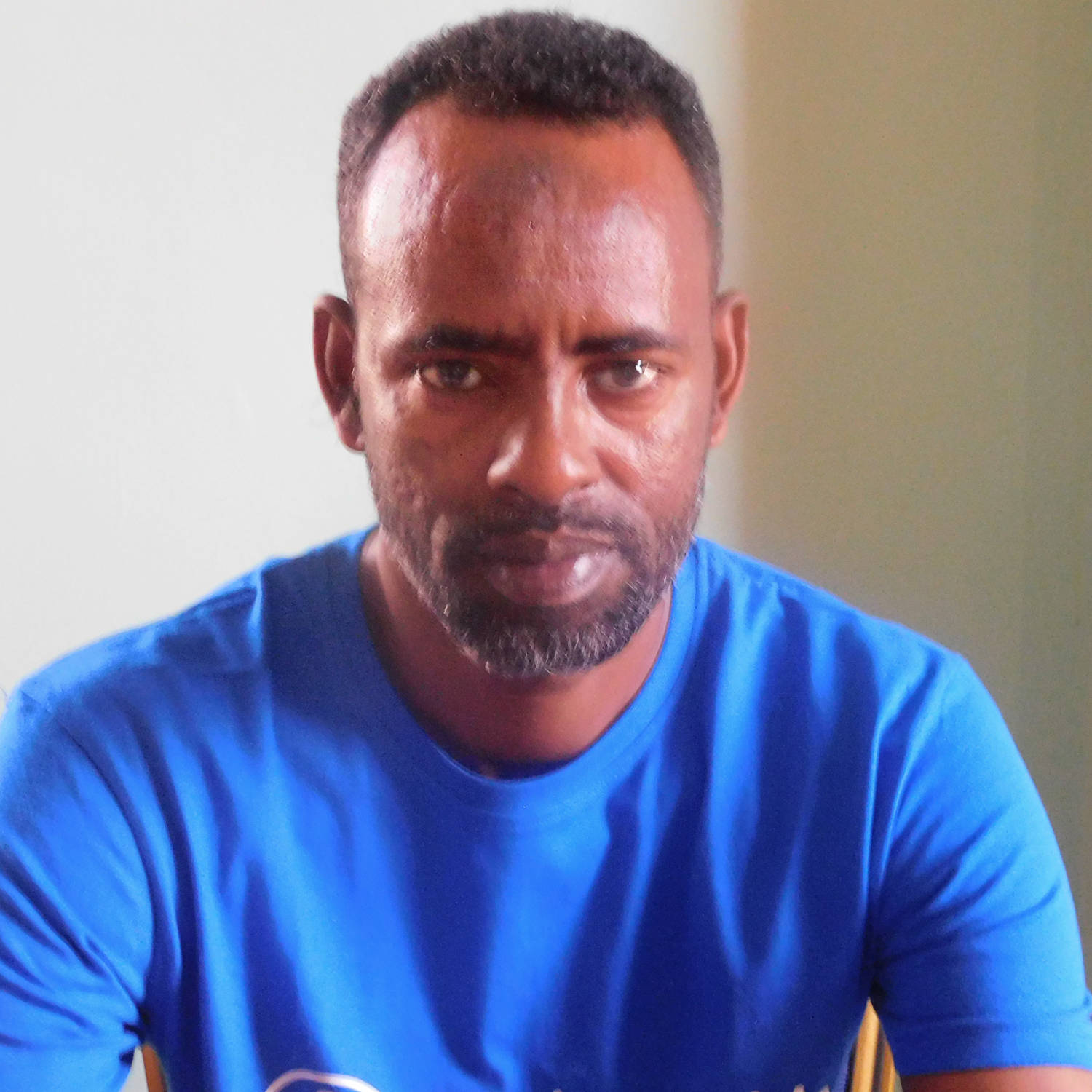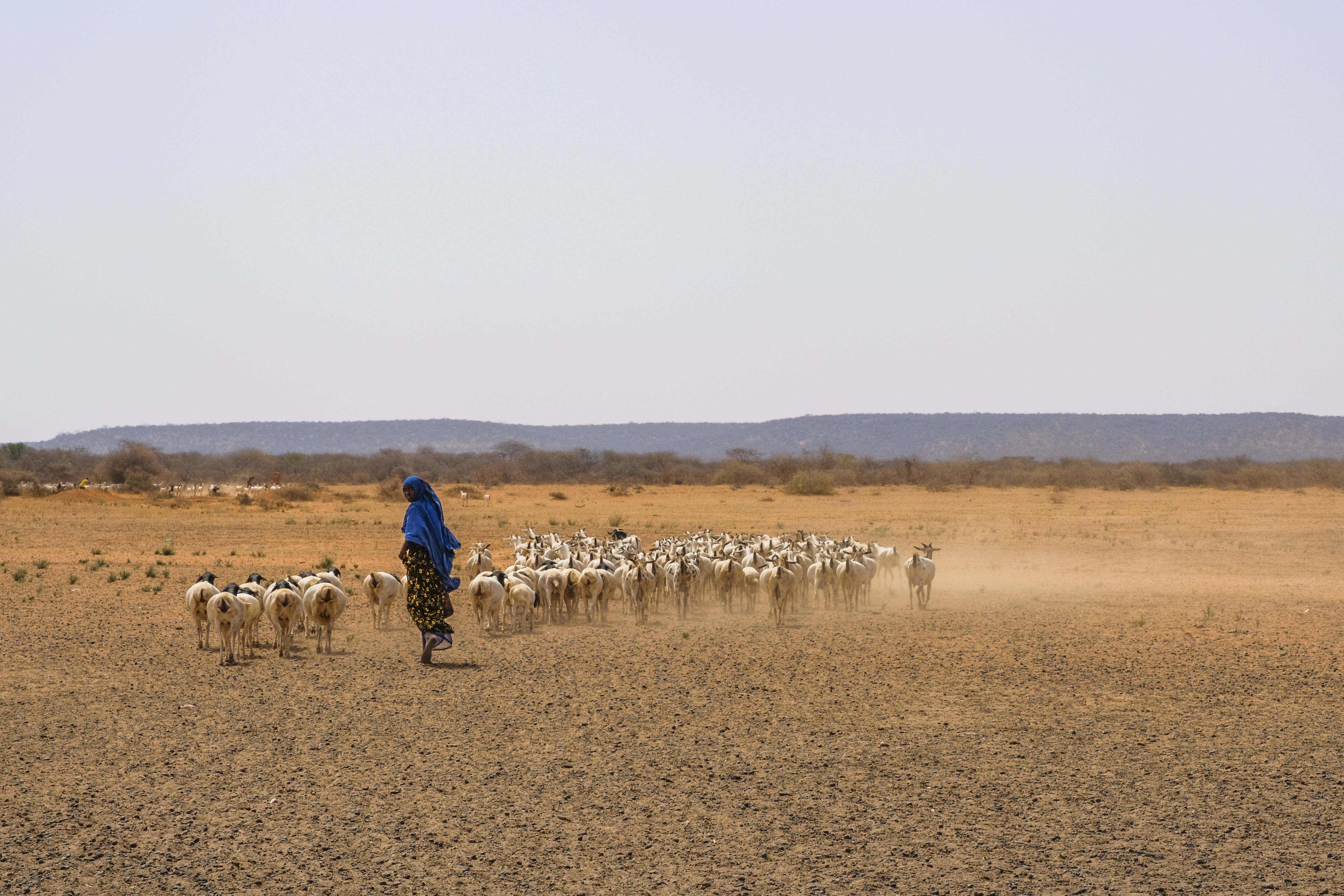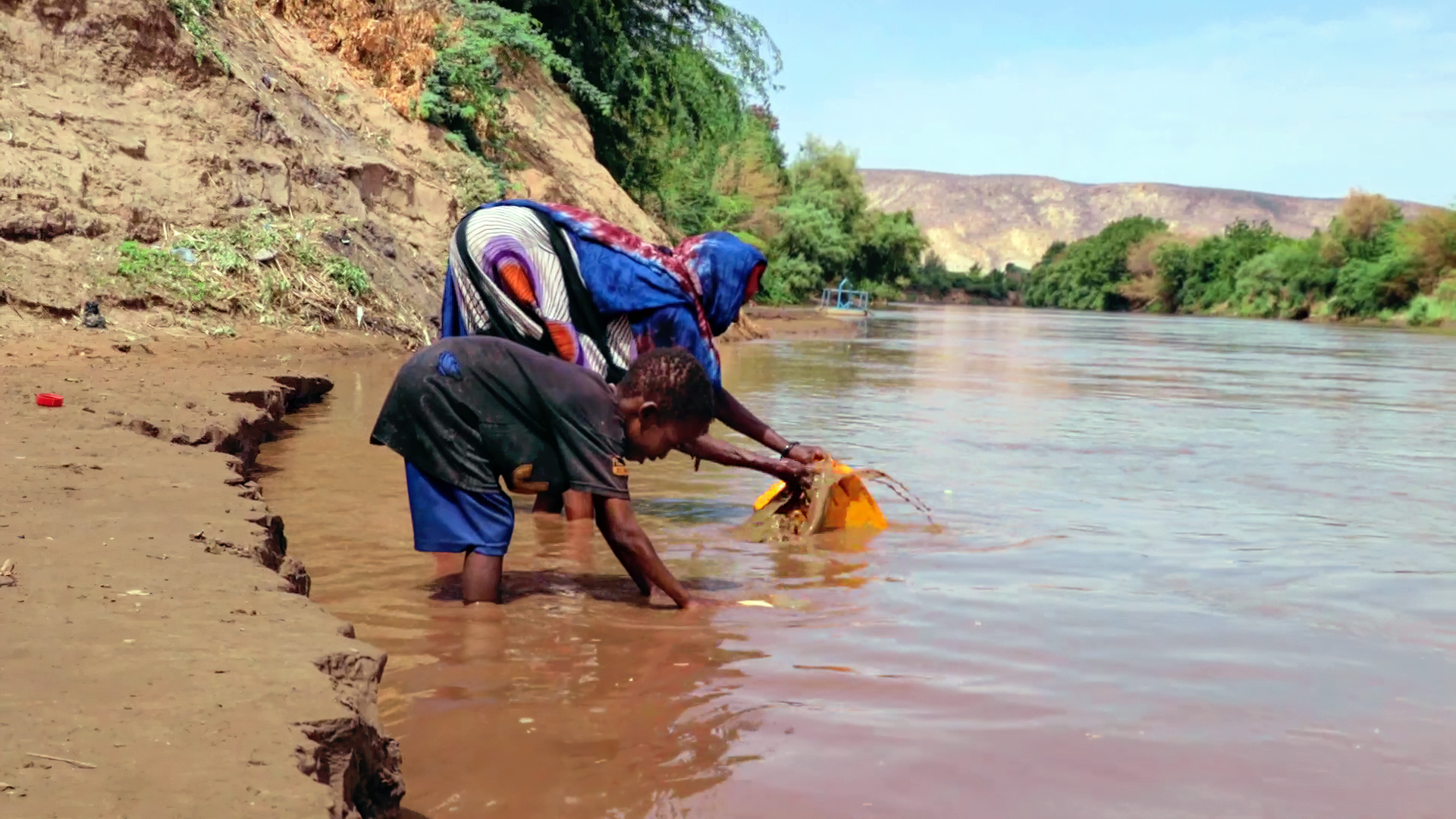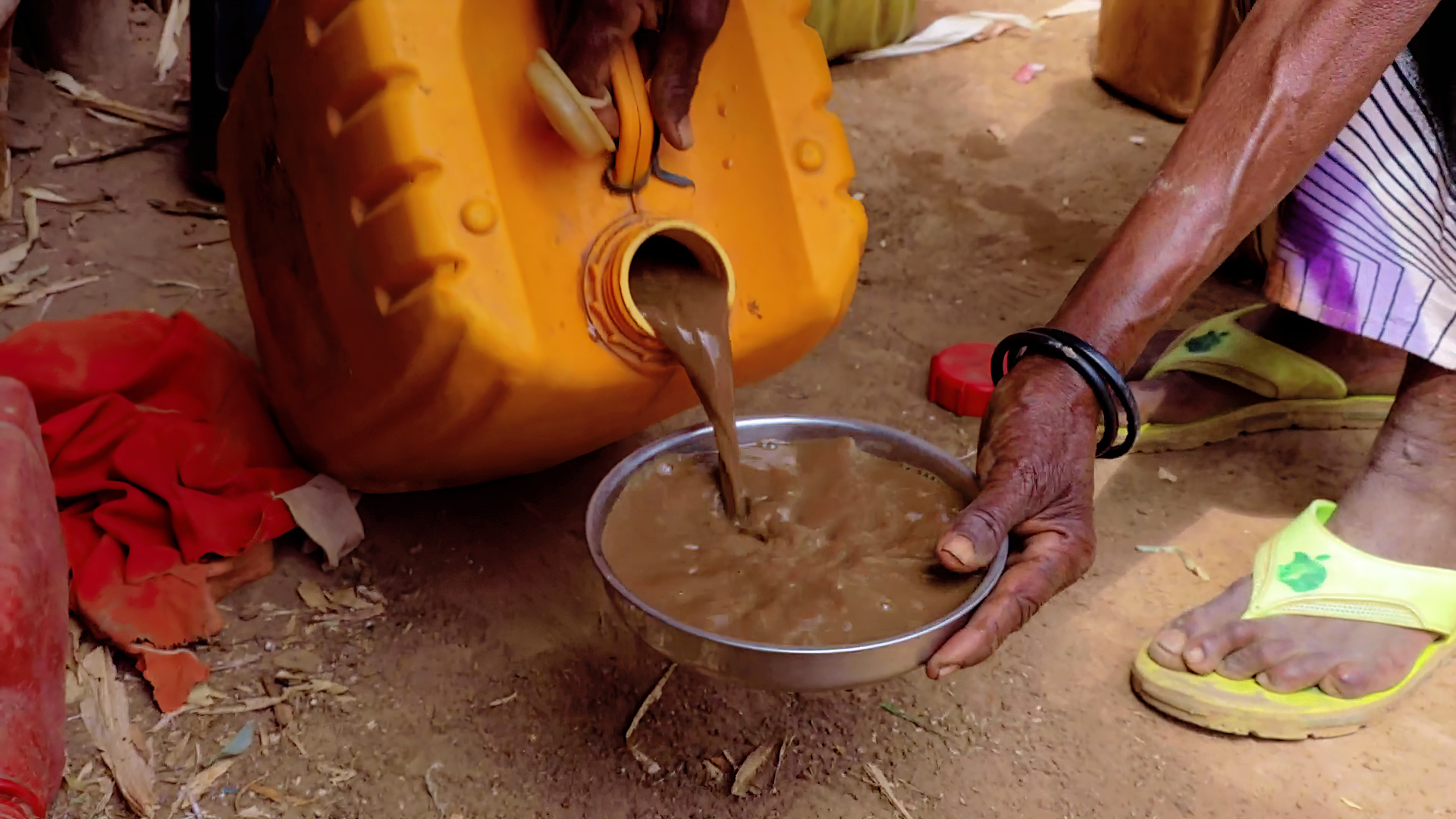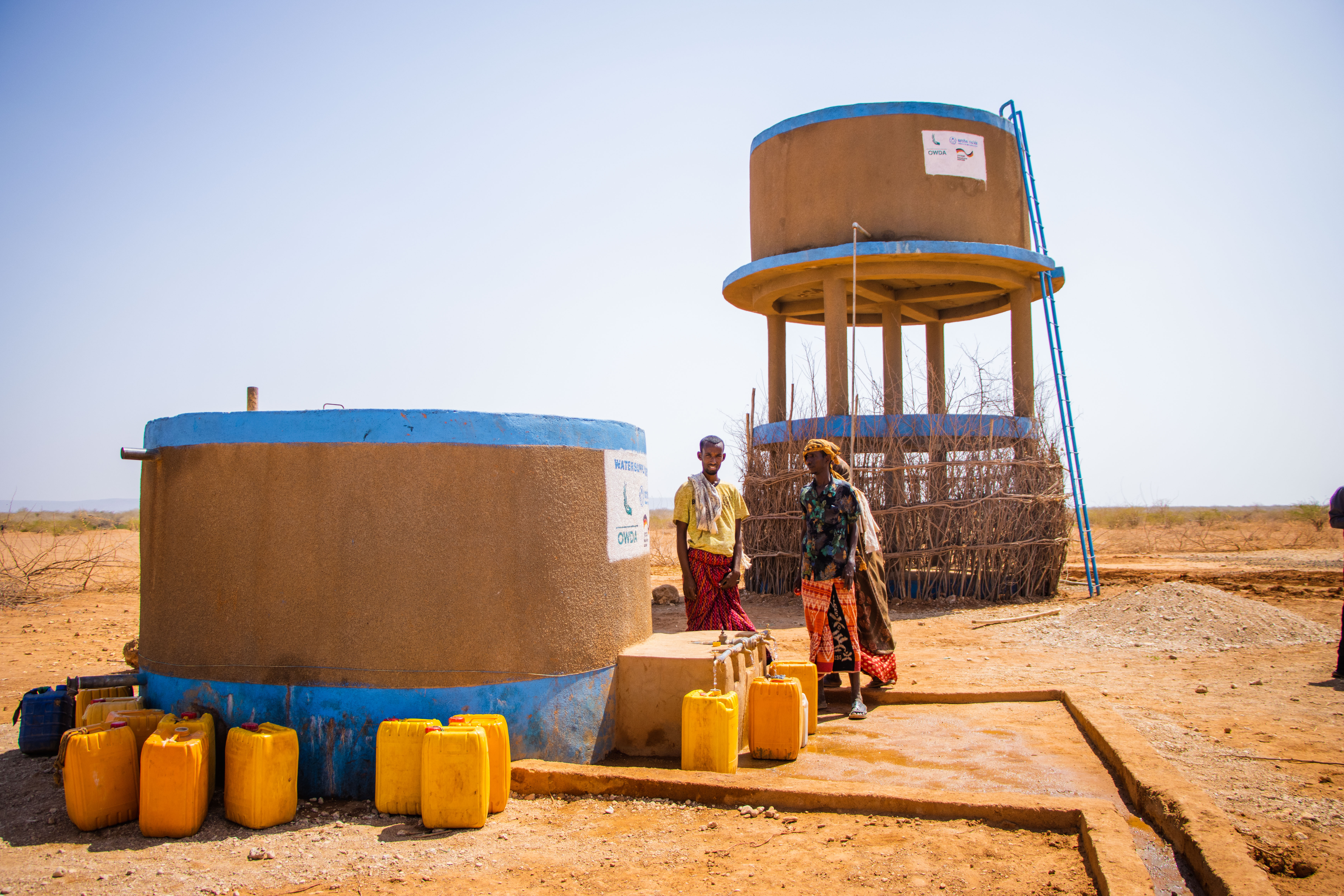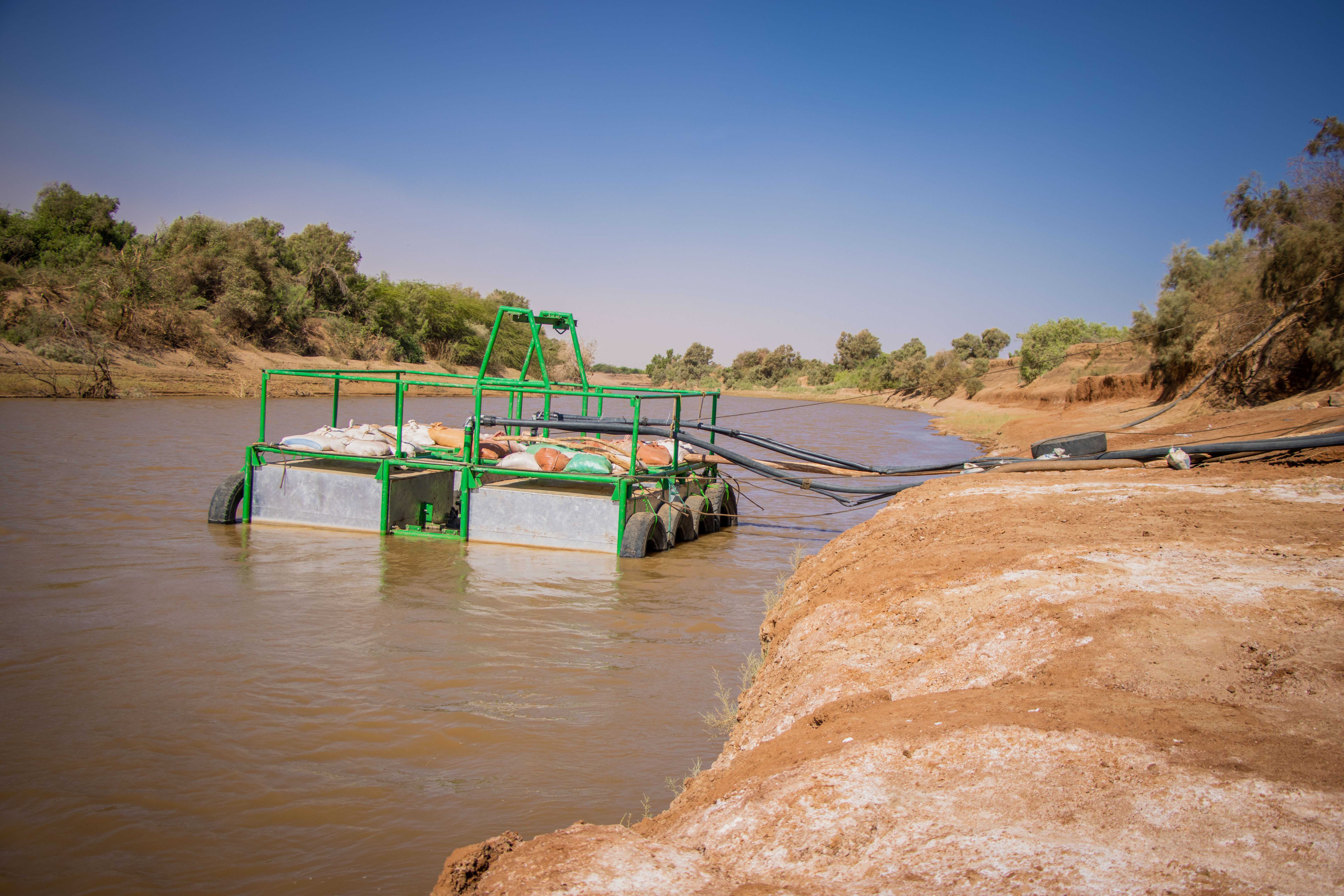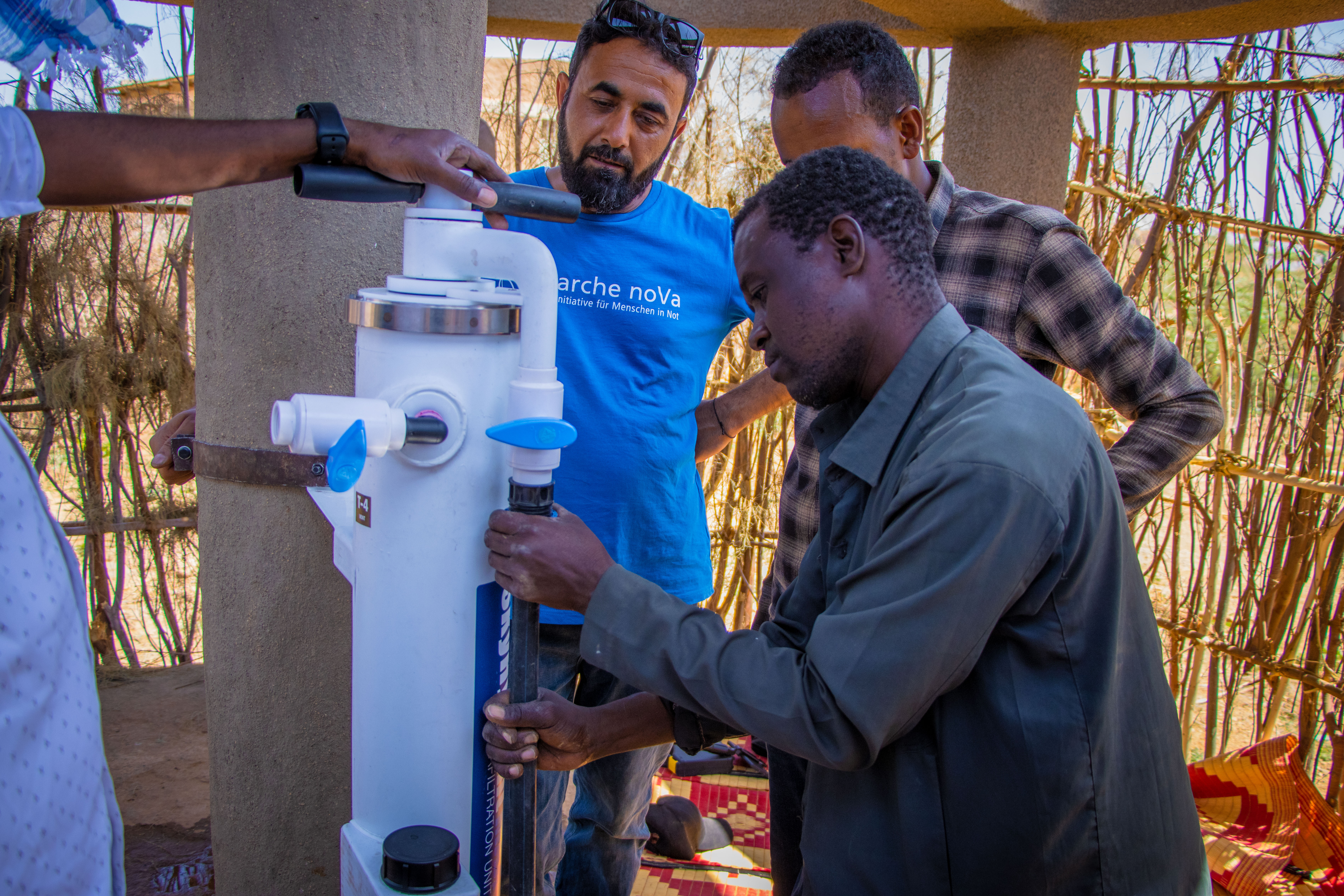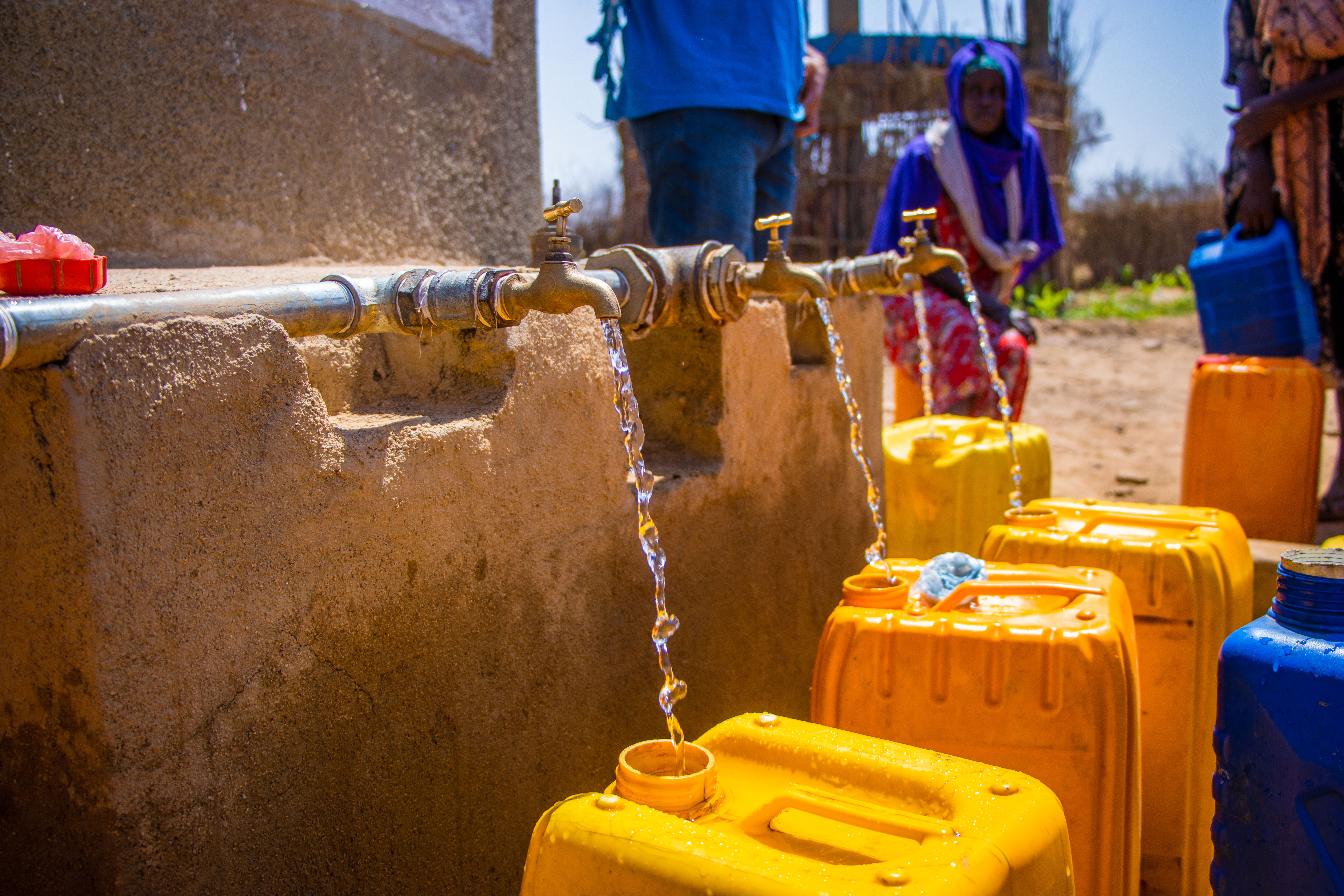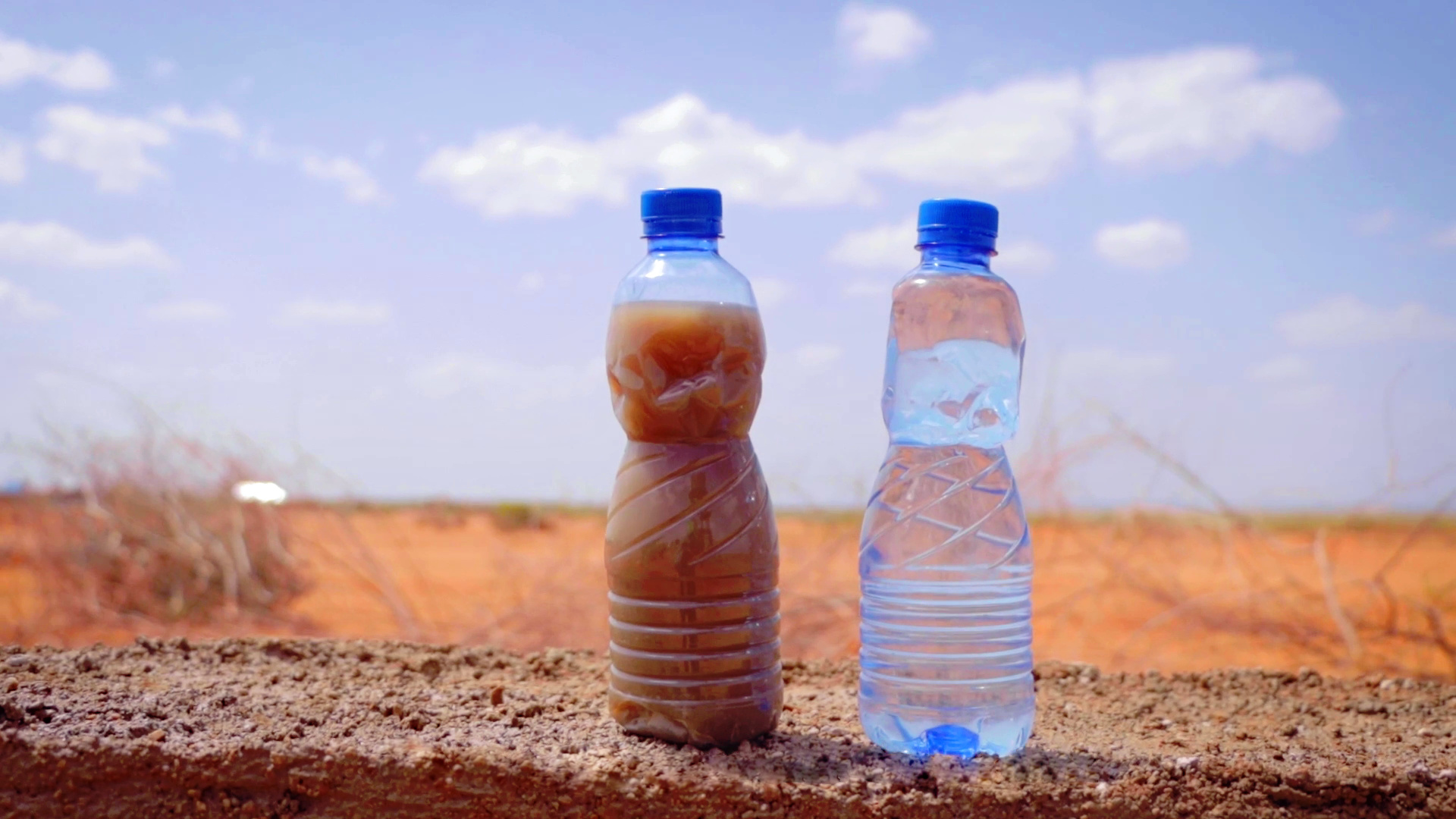Water supply is a huge challenge in Ethiopia. On the one hand, persistent droughts and thus water shortages are on the increase, while on the other hand, many people have to resort to water sources lacking alternatives, which pose a significant health risk due to severe contamination. According to the international WASH cluster, 42 million people have no access to at least basic drinking water. That's 34 percent of the population. In the Somali region, in the east of the country, infrastructure is particularly poor. There is a lack of wells, rainwater storage and treatment facilities. Existing systems are often dilapidated and non-functional.
Water that makes people sick
The Shabelle is one of the major rivers in Ethiopia. It is the lifeline for large parts of the Somali region. At the same time, the poor water quality endangers the people. This is because fecal matter and other biological contaminants carried along can cause serious diseases.
Very often, those affected suffer from severe and prolonged diarrhea, which is usually caused by Enterobacter. In addition, type and gastroenteritis as well as giardiasis or even cholera occur. The water also causes various skin diseases, some of them serious.
Diseases like these are anything but a trifle in the river communities along the Shabelle. The nearest medical facilities are far away and difficult to reach for people who have no money for transportation. And hardly any family can afford medication. Thus, the sick people do not have much more to do than wait and hope. Not everyone will get well again. Especially, already weakened or malnourished people as well as children and elderly people live with the constant danger of getting seriously ill if they have nothing else than the river water at their disposal.
Ultrafiltration for healthy water
Even at first glance, you can see how turbid the water of the Shabelle is. The river carries a huge amount of mud because of the enormous soil erosion that occurs during the short rainy seasons in the region, which is characterized by extreme drought. Drinking the river water is therefore highly unpleasant. But not only that, pathogens such as parasites, bacteria and viruses also "attach" themselves to the suspended particles in the water. A simple treatment of the water with chlorine, for example, is not effective here. arche noVa therefore relies on skyjuice filtration systems at the project sites, with which we have had excellent experience in various project countries for more than ten years. Our project partner for the implementation in the Somali region is OWDA (Organization for Welfare and Development in Action), the Ethiopian organization focuses on essential basic needs of the people and sustainable development in the sense of helping people to help themselves.
River water extraction systems are being built in six communities on the Shabelle as part of our extensive cooperation. They consist of pumps that channel the river water into tanks. Here, the suspended particles settle out. The water then enters elevated tanks, from which it flows into the filtration systems. The water pressure from the elevated tanks is sufficient for the process. The process finally ends at the tapping stations in the villages, where people can conveniently fill up their water at taps. There, service water for washing clothes, etc., as well as filtered drinking water is available directly from the distribution tanks. These activities benefit a total of 11,800 people.
Donate for this project
Filtersystem für Flusswasser am Shabelle River
Never again having to carry jerry cans from the river
In addition to the gain in water quality and health care, the new water systems are also a great relief for the everyday life of the local people. After all, fetching water from the Shabelle is usually a time-consuming and energy-sapping task. A large part of the population lives one to two kilometers away from the river. Women and children, who are responsible for fetching water in many African countries, also have to travel long distances every day in this project region to secure the water supply for their families. In doing so, they run the risk of drowning or being attacked by the numerous crocodiles that come to the river to drink. In many places, the bank is also steep and slippery. People have to carry their canisters up to six meters down and up again.
Our water systems ensure water accessibility directly in or in the immediate vicinity of the villages. Solar power is used as the energy source for the pumps. Sustainability is generally an important principle of our work. This is expressed in the river communities not only in the energy supply, but also in the involvement of the local people. For example, all plants are built in close consultation with the relevant local authorities. Committees are set up at each site for maintenance and upkeep.
- Since 2017 water projects in the Somali region
- Cooperation partner on site: OWDA (Organization for Welfare and Development in Action)
- Drinking water supply in emergency aid through water trucking
- Securing the water supply through the construction of rainwater storage tanks (Birkads) as well as river water intake systems at the Shabelle River
- Improvement of water quality through the use of filtration systems (Skyjiuce)
- Construction of water distribution points, livestock watering points and irrigation systems
- Use of climate-friendly solar energy for water pumps
- Establishment and training of water management committees
- Education and training to promote good hygiene practices

An important milestone in a deprived region
Ethiopia is the world's most populous landlocked country, ranking 173rd out of 189 countries on the Human Development Index (as of 2019). One-tenth of the population is considered malnourished. Frequent droughts and climatic changes make life difficult for the people. The Somali Region, where our project area is located, is in the east and southeast of the country. Here the climate is dry and semi-arid with temperatures up to 45 degrees Celsius. The main rainy season "Gu" is in April to June, with a second in late autumn. Rainfall totals a maximum of 500 mm per year, with much of the water running off unused, especially during heavy rain events.
Due to the many droughts, water is scarce and the livelihood of the population is threatened. 86 percent of the people live as cattle breeders (camels, cattle, donkeys, goats and sheep). They roam with their herds searching for pasture and water. Agriculture is usually practiced only for subsistence. In the course of climate change, harvests are failing more and more frequently and pastureland is being lost. For the affected families, there is hardly any other option than to settle in areas with better water availability. This is precisely why our project sites at Shabelle have grown enormously in recently. Hardly anyone has a sufficient income. The construction of the water systems is therefore also a great benefit for the people from an economic point of view. The river water intake systems allow the irrigation of agricultural land. To complete the project, hygiene programs and trainings on agricultural topics take place.

